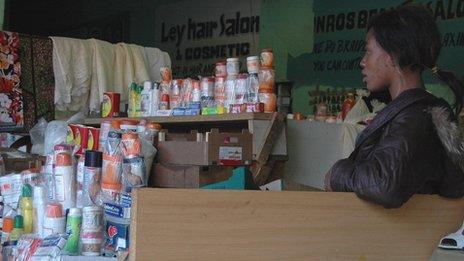'Racist' Thailand skin-whitening advert is withdrawn
- Published

The advert has stirred up a storm of debate online, with a lot of commentators calling it racist
A Thai cosmetics firm has withdrawn its video advertising a skin-whitening product after it was attacked on social media for being racist.
The advert for 'Snowz' features famous Thai actress Cris Horwang attributing her success to fairer skin.
The company behind the product, Seoul Secret, issued a "heartfelt apology", saying it had not meant to offend.
The incident has reignited the debate about attitudes to skin colour in Thailand.
Comments about the shade of a person's skin have been commonplace in a country with an abundance of skin-whitening products, although many younger Thais now refuse to accept the stereotypes associated with skin colour.
'Heartfelt apology'
"In my world there is tough competition. If I don't take care of myself, everything I have built, the whiteness I have invested in, could be gone," Cris Horwang warns in the video advert.
At that point her skin turns almost black, and a young, and very white, rival appears by her side. She looks down in dismay at her dark complexion and muses "if I was white, I would win".
The advert stirred up a storm of debate online, with many Twitter users critical of the advert itself as well as the decision to withdraw it.
One person wrote on a Thai-language forum Pantip.com: "I'm perfectly fine being dark-skinned and now you're saying I've lost? Hello? What?"
"Suggesting people with dark skin are losers is definitely racist," wrote another.
Seoul Secret quickly withdrew the advert, although it could still be seen on YouTube on Friday, external, and offered a swift apology.
"What we intended to convey was that self-improvement in terms of personality, appearance, skills, and professionalism is crucial," the firm said.
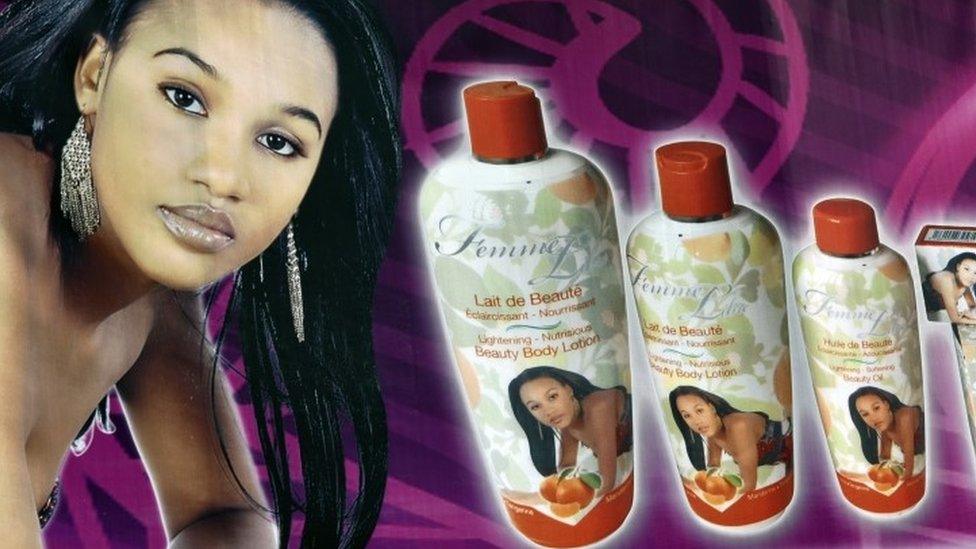
Skin-whitening products like this one in Ivory Coast are available in many parts of the world
The BBC's Jonathan Head in Bangkok says that as an advertising slogan it could not have been blunter - ending as it does with "Eternally white, I'm confident".
The abundance of skin-whitening products available in Thailand, and the efforts many Thai women go to shelter from the sun, highlights the obsession with pale skin, our correspondent says.
Two years ago, when Nonthawan "Maeya" Thongleng won the 2014 Miss Thailand World beauty contest, much comment centred on how dark her skin was compared to typical contestants.
At the time she said she wanted to encourage all other women who felt insecure because of their darker skin.
Darker skin is often associated in Thailand with manual, outdoor labour, and therefore with being "lower class".
Also much of the urban elite are of ethnic Chinese origin, who tend to have lighter skin than the indigenous people of the Thai countryside.
"This is not a problem that is unique to Thailand. It's a problem that exists all over the world," says social critic Lakkana Punwichai.
"The issue also underlines the issue of class in Thailand, where those with darker skin are viewed as the poor from the rural north-east. We look down on them, on Cambodians, and Indians with darker complexions.
"However, attitudes are changing as Thai elites start to look down on women who long to be white, the same way some westerners look down on "blonde bimbos"," she said.
- Published30 September 2015
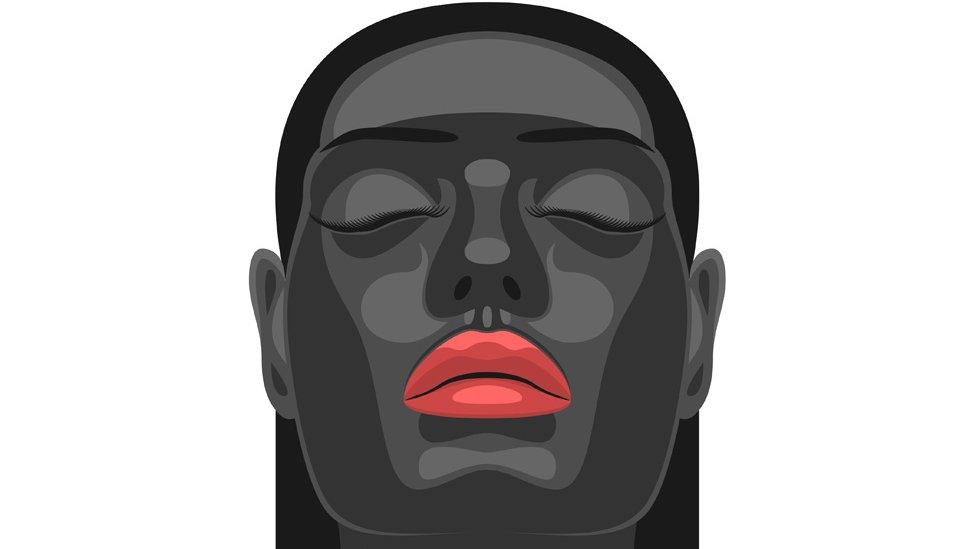
- Published7 May 2015
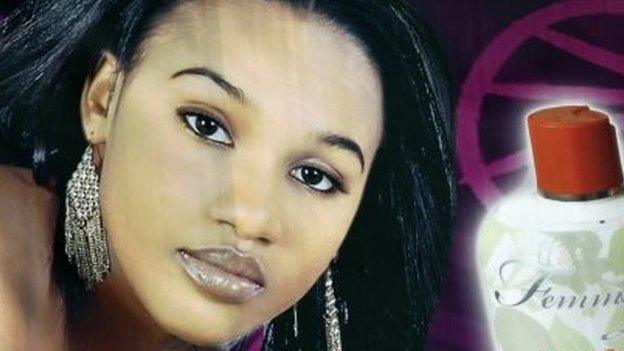
- Published27 June 2014
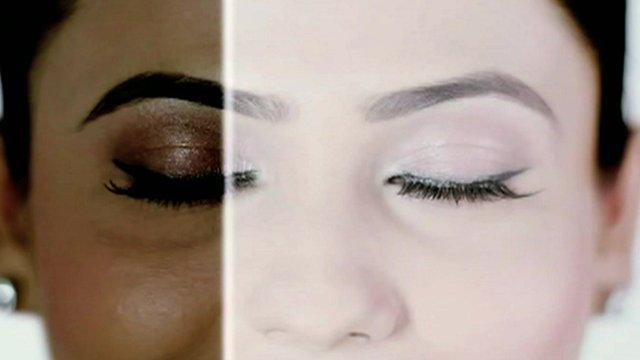
- Published6 June 2012

- Published20 February 2013
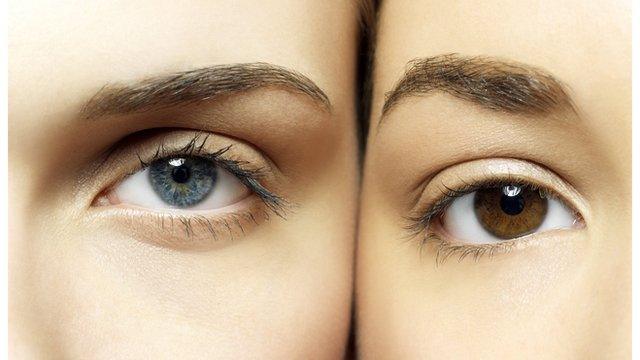
- Published1 January 2013
